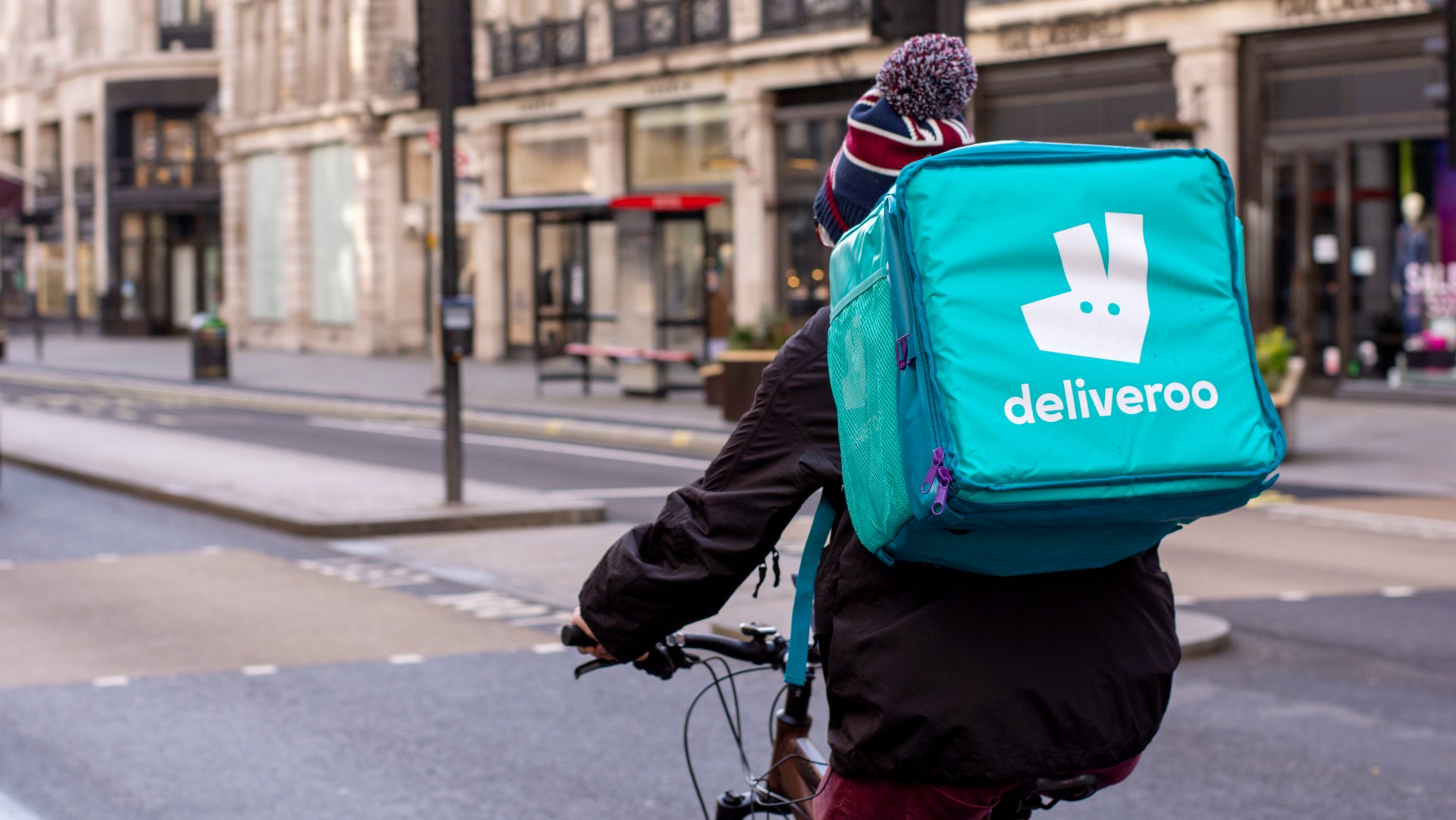Early retirees: should they get on their bikes?
Mel Stride suggests over-50s should consider joining Deliveroo

A free daily email with the biggest news stories of the day – and the best features from TheWeek.com
You are now subscribed
Your newsletter sign-up was successful
Although for decades he was greeted by cries of “on your bike” wherever he went, Norman Tebbit never told anyone to get on a bike, said John Elledge in The New Statesman. He merely recalled, at the Tory conference in 1981, that during the Depression, his father had pedalled around the country in search of work. It was a clever story, designed to suggest that an unemployment problem created by structural forces (partly of his government’s making) was the result of individual inertia.
Now, 41 years on, the Tories are playing a similar trick – only this time, they really are suggesting that people should get on their bikes.
On a visit to the HQ of Deliveroo last week, Mel Stride, the Work and Pensions Minister, opined that the food delivery firm offered “great opportunities” that older economically inactive workers “might not otherwise have thought of”. Such jobs, he added, could also “help with fitness”.
The Week
Escape your echo chamber. Get the facts behind the news, plus analysis from multiple perspectives.

Sign up for The Week's Free Newsletters
From our morning news briefing to a weekly Good News Newsletter, get the best of The Week delivered directly to your inbox.
From our morning news briefing to a weekly Good News Newsletter, get the best of The Week delivered directly to your inbox.
‘Stride won’t be jumping on a bike’
To be fair to Stride, his idea addresses two real problems: older people struggling to make ends meet in a cost-of-living crisis, and a labour market crying out for workers. But is it any kind of solution?
One thing we do know, said Sean O’Grady in The Independent, is that when Stride, 61, leaves public service, he won’t be jumping on a bike with an insulated rucksack on his back. He will have a choice of directorships to supplement his index-linked pension. And you do wonder how many older people would cope with Deliveroo jobs, said Harry Wallop in The Times. I did a stint for the firm in 2016. The pay wasn’t terrible (it worked out at £11.20 an hour), but the work was unreliable (shifts were limited) and physically demanding: cycling in traffic in the rain, sometimes climbing eight flights of stairs to deliver an order, is not easy.
‘Half a taxpayer better than none’
Delivery work won’t suit everyone, said Jenny Hjul on Reaction. But the fact remains that our economic prosperity depends on people working, and currently, 3,547,000 people aged 50 to 64 are economically inactive (27% of that age group). Of those, 1.6 million are long-term sick – 20% more than three years ago. Of the rest, some will be well off and not wanting paid work, but research has found that half of those who dropped out during the pandemic are struggling financially.
These people may be ready to “unretire”, said The Times: but to persuade them in large numbers will require there to be the right kinds of job. Firms will have to offer older workers flexible terms and a degree of respect. The Government, too, needs to be inventive. It might, say, devise tax incentives for people to stay in work or return to lower-paid work. “Half a taxpayer is better than none.”
A free daily email with the biggest news stories of the day – and the best features from TheWeek.com
-
 Minnesota's legal system buckles under Trump's ICE surge
Minnesota's legal system buckles under Trump's ICE surgeIN THE SPOTLIGHT Mass arrests and chaotic administration have pushed Twin Cities courts to the brink as lawyers and judges alike struggle to keep pace with ICE’s activity
-
 Big-time money squabbles: the conflict over California’s proposed billionaire tax
Big-time money squabbles: the conflict over California’s proposed billionaire taxTalking Points Californians worth more than $1.1 billion would pay a one-time 5% tax
-
 ‘The West needs people’
‘The West needs people’Instant Opinion Opinion, comment and editorials of the day
-
 TikTok: New owners, same risks
TikTok: New owners, same risksFeature What are Larry Ellison’s plans for TikTok US?
-
 Will SpaceX, OpenAI and Anthropic make 2026 the year of mega tech listings?
Will SpaceX, OpenAI and Anthropic make 2026 the year of mega tech listings?In Depth SpaceX float may come as soon as this year, and would be the largest IPO in history
-
 Leadership: A conspicuous silence from CEOs
Leadership: A conspicuous silence from CEOsFeature CEOs were more vocal during Trump’s first term
-
 Ryanair/SpaceX: could Musk really buy the airline?
Ryanair/SpaceX: could Musk really buy the airline?Talking Point Irish budget carrier has become embroiled in unlikely feud with the world’s wealthiest man
-
 Powell: The Fed’s last hope?
Powell: The Fed’s last hope?Feature Federal Reserve Chairman Jerome Powell fights back against President Trump's claims
-
 Taxes: It’s California vs. the billionaires
Taxes: It’s California vs. the billionairesFeature Larry Page and Peter Thiel may take their wealth elsewhere
-
 Buffett: The end of a golden era for Berkshire Hathaway
Buffett: The end of a golden era for Berkshire HathawayFeature After 60 years, the Oracle of Omaha retires
-
 Is $140,000 the real poverty line?
Is $140,000 the real poverty line?Feature Financial hardship is wearing Americans down, and the break-even point for many families keeps rising